Calls for Ukraine
Calls for Europe
Calls for USA
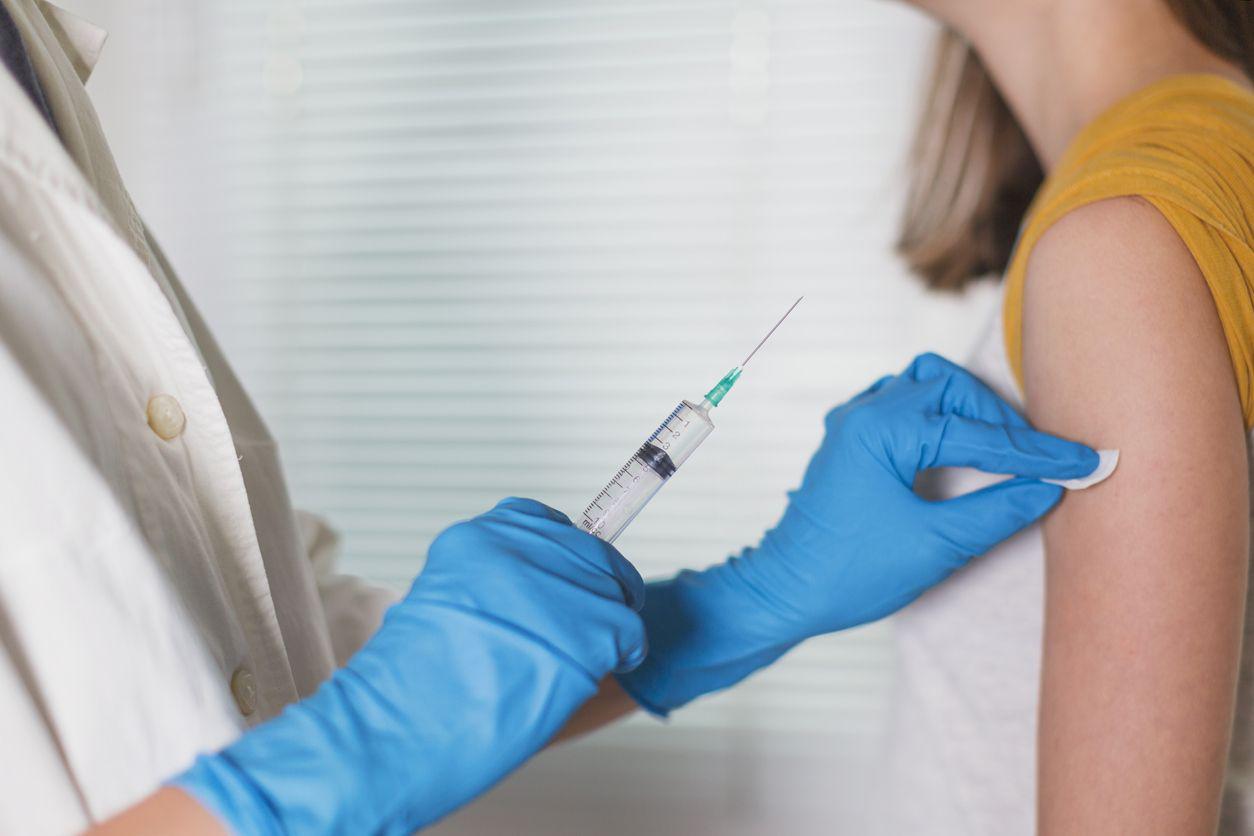
Cervical cancer is one of the most common types of cancer in women. This is a serious disease that requires long and expensive treatment. Therefore, scientists have focused their attention on finding effective methods for its prevention.
For the first time, the link between the human papillomavirus and cancer, including cervical cancer, was first established by Harald zur Hausen, who received the Nobel Prize in Medicine in 2008 for his work. This discovery became the basis for the creation of a preventive vaccine.
The drug is designed to protect against infection with the human papillomavirus (HPV). It is the most common sexually transmitted infection. Several subtypes of HPV contribute to the development of cervical cancer, and in men, oncogenic types of the virus contribute to the development of squamous cell carcinoma of the penis. Human papillomavirus can also cause other types of cancer, such as papilloma of the larynx, vagina, or anal canal.
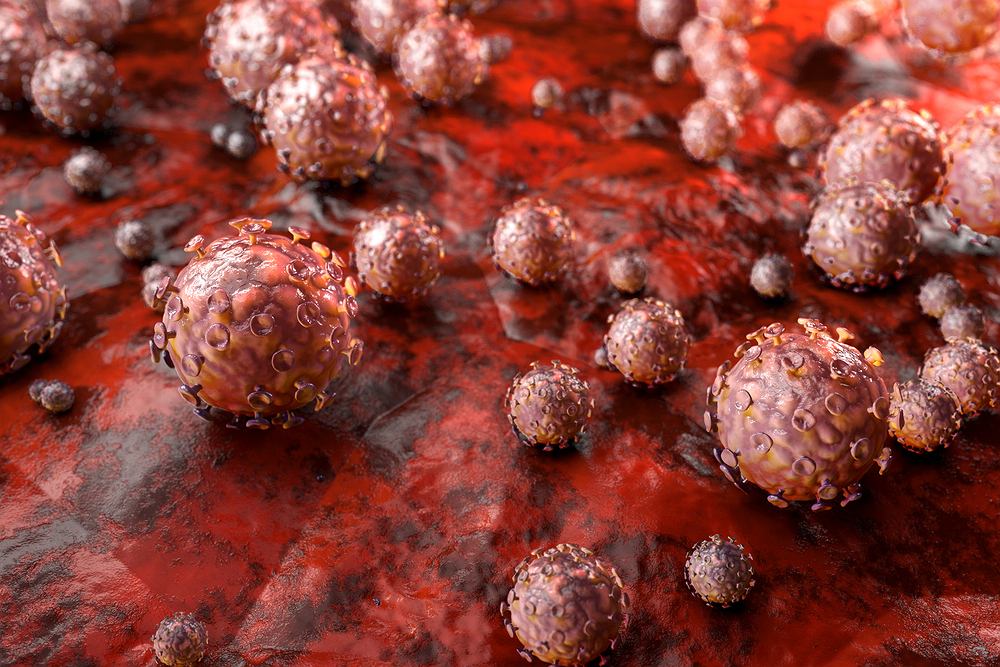
HPV is a sexually transmitted virus through skin-to-skin contact. Not every infected person shows symptoms of the disease, on the contrary, most often the infection is asymptomatic and goes away on its own. Because most people are unaware of the presence of the virus, they unknowingly infect others.
Some types of HPV can cause abnormal changes in the cells of the lining of the genitals, anal canal, and larynx and lead to cancer. In particular, HPV subtypes 16 and 18 are responsible for 70% of cervical cancer cases.
There is no cure for HPV. The effects of infection can be treated with varying degrees of success. The only form of infection prevention is sexual abstinence and vaccination.
Currently, doctors recommend vaccination of children aged 11-13 years before the onset of sexual activity. The child should receive two vaccinations 6 to 12 months apart. If vaccination is given at 15 years of age or older, the patient is given 3 doses of the vaccine over 6 months.
Usually, when it comes to HPV prevention, the focus is on vaccinating girls. This is because HPV-associated squamous cell carcinoma of the penis is much less common in men than cervical cancer in women. However, vaccination not only protects men from contracting human papillomavirus infection, but also reduces the risk of its transmission. Thus, HPV vaccination in men indirectly helps to reduce the incidence of cervical cancer in women.
Currently, vaccination is indicated for the prevention of HPV-associated cancers in:
The introduction of the vaccine is well tolerated by patients and does not cause serious side effects.
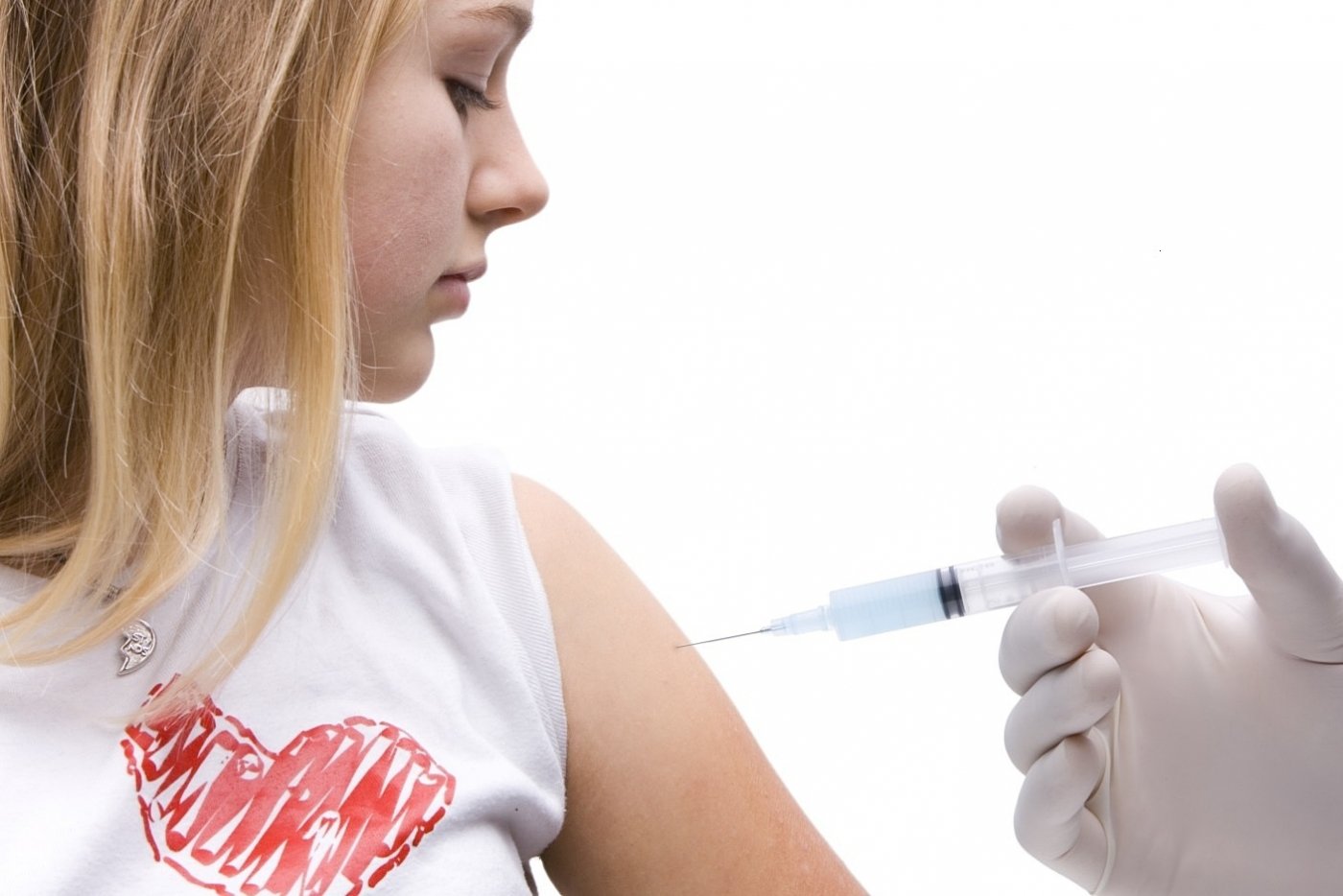
The vaccine is given intramuscularly into the deltoid muscle. For children aged 9 to 14 years, a two-dose regimen is most commonly used. The second dose is administered between 5 and 13 months after the first dose. If the second dose was given earlier than 5 months later, the patient will need a third.
Vaccination is always carried out with the same drug!
For patients over 15 years of age, vaccination usually consists of three doses. The second dose is given one or two months after the first dose (depending on the vaccine used), and the next dose is given six months after the first dose. The three-time vaccination is also recommended for people aged 9 to 26 with weakened immune systems.
HPV vaccination should not be given to girls under 9 years of age due to the lack of data on the safety and immunogenicity of the drug in patients in this age group. Studies on pregnant women have not been conducted, so pregnancy is also a contraindication for vaccination.
The HPV vaccine should not be given to people who are allergic to any of its ingredients, or to people with a fever (reduced temperature or an upper respiratory tract infection is not a contraindication to vaccination). The vaccine can be used while breastfeeding.
Local and generalized adverse reactions after HPV vaccination are not a contraindication for the introduction of an additional dose.
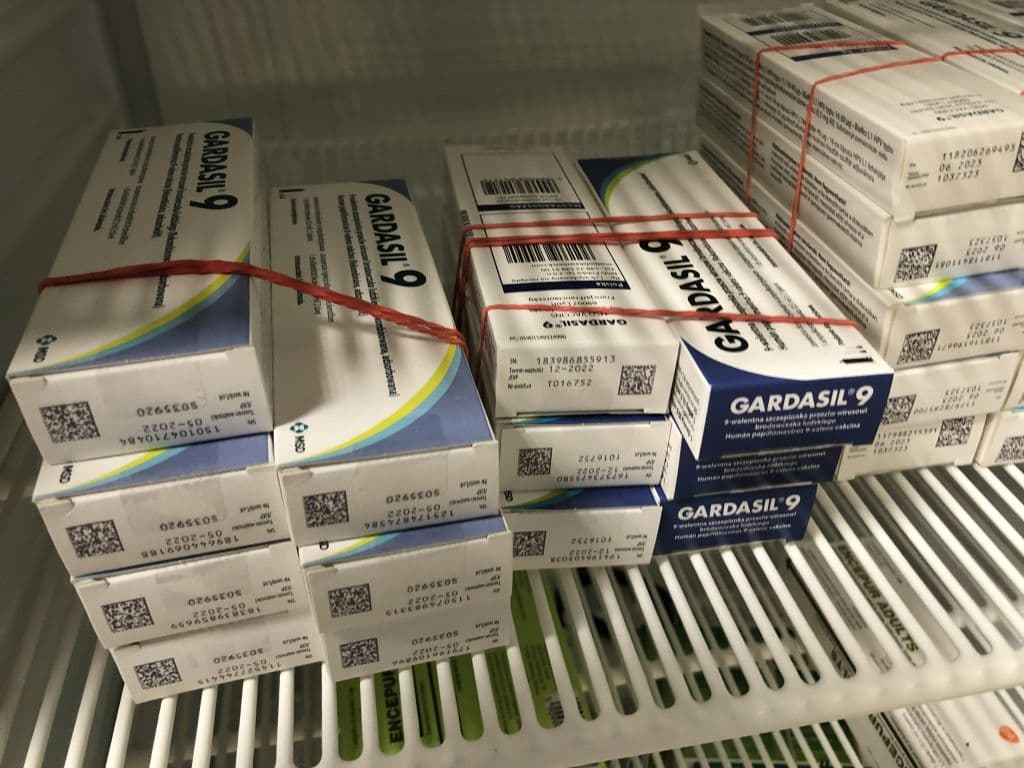
There are currently three types of preventive cervical cancer vaccines available.
If you search for HPV vaccine prices online, you will notice that prices vary greatly. This is because clinics include the price of a preliminary examination and the procedure itself in the cost of vaccination.
Studies show that the use of quadrivalent vaccines reduces the risk of cervical cancer by up to 70% (and by the nine-valent vaccine Gardasil-9 – up to 90%). The effectiveness of quadrivalent and nine-valent vaccines in the prevention of genital warts is the same and is 90%.
Prevention is most effective in girls and women who were not infected with HPV prior to vaccination. The greatest effectiveness is observed in the group of adolescents before the onset of sexual activity. It is known that immunity after vaccination persists for many years (more than 10). However, currently available preventive drugs do not protect against all HPV subtypes, so vaccinated women should not neglect screening for cervical cancer and get regular Pap smears.
If a woman has already had sexual contact, vaccination is carried out only after a thorough diagnosis. The vaccine is not a form of treatment for HPV or cervical cancer.
The methods developed to date to prevent cervical cancer are very effective. Compliance with the principles of prevention allows people to avoid the disease in 93% of cases. These methods include:
In addition, doctors advise quitting smoking, as nicotine significantly increases the risk of developing cervical cancer. You can also reduce the likelihood of the disease by including vitamin A and beta-carotene in your diet, according to scientists from the American Institute for Cancer Research.

Once in the body, the human papillomavirus (HPV) often does not manifest itself. However, there are some signs that may indicate the development of this infection:
If you suspect you have an HPV infection, you should see your doctor for diagnosis, advice, and further advice. Call or write to us and the medical coordinator of MedTour will recommend you the best doctor specializing in the diagnosis and treatment of human papillomavirus infection.
If a person has been vaccinated and has contracted HPV, this does not mean that the vaccine did not work. The Cervarix vaccine protects against 16 and 18 HPV subtypes, the Gardasil vaccine additionally protects against subtypes 6 and 11, and the Gardasil-9 vaccine also protects against 31, 33, 45, 52 and 58 high-risk HPV subtypes. But it should be remembered that there are more than 200 types of human papillomavirus infection. Vaccines protect only from the most dangerous ones; before the rest, a person is still vulnerable.
The only 100% effective method of protecting against HPV infection is sexual abstinence. The use of condoms reduces the risk of transmission of human papillomavirus infection, but does not completely eliminate it.
HPV vaccination was first introduced in 2006. Since then, infections with the HPV subtypes most associated with cancer and genital warts have dropped by 88% in adolescent girls and by 81% in young adult women.
The vaccinated patients were followed up for at least 12 years and their protection remained high with no signs of decline over time.
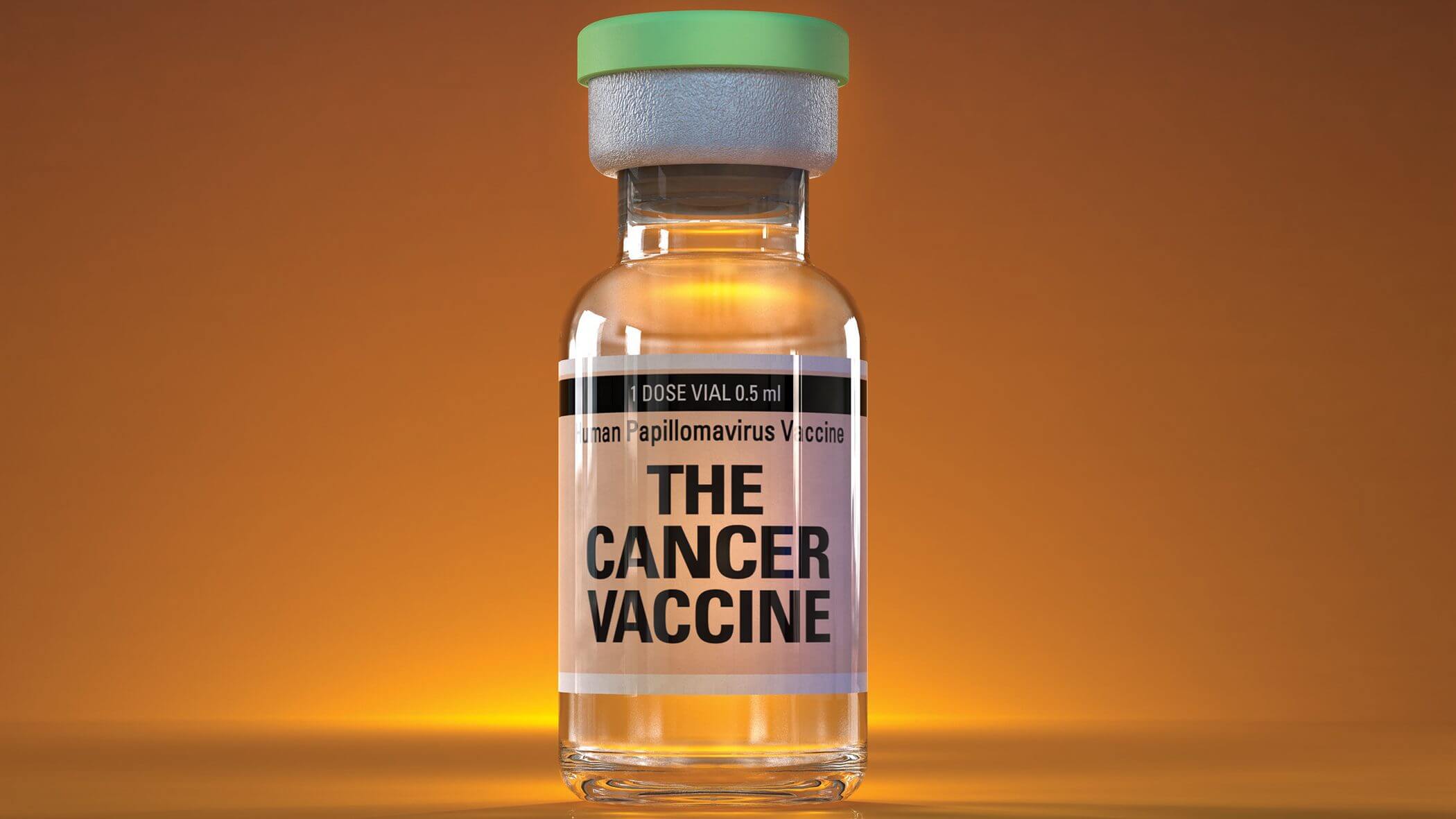
The principle of action of the vaccine, which is used to treat cancer, is fundamentally different from the prophylactic drug. Normally, the human immune system is able to recognize foreign agents and pathological cells in the body. However, cancerous tumors develop mechanisms that make them invisible to the “soldiers” of the immune system (lymphocytes). Cancer vaccines are created on the basis of tumor material taken from a patient after removal of a malignant tumor, or using animal proteins that are similar in structure to tumor antigens.
Once in the body, the cancer vaccine trains immune cells to recognize and attack cancer cells. Thus, it stimulates the patient’s natural defense system to fight the malignant process.
Currently, vaccine therapy is one of the most promising areas in the field of oncology. Many countries are developing vaccines to treat various types of cancer. Their use helps to increase the effectiveness of standard treatments and reduce the risk of recurrence of the disease.
The MedTour company is trying to make innovative methods of treatment more accessible to patients. We are currently collaborating with a number of clinics around the world that offer cancer vaccine therapy. Call the number listed on the site or fill out the feedback form to get a free consultation. Our coordinating doctor will tell you in detail about the new method of therapy and help organize the treatment.
The MedTour company cooperates with leading medical centers that are engaged in the prevention of cervical cancer by vaccination. Write or call us. The medical coordinator of MedTour will select a clinic in accordance with your capabilities and personal wishes, and will also help resolve all organizational issues.
The MedTour platform contains information about leading doctors specializing in the prevention and treatment of human papillomavirus infection. Contact our coordinating doctor in any way convenient for you to select an experienced and highly qualified specialist for you.
Please rate the work of MedTour
